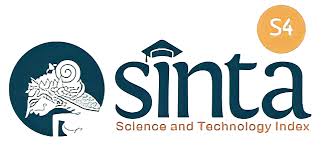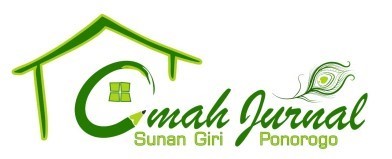Teachers' Reflections and Students' Perceptions of Blended Learning in Increasing English Learning Independence at Islamic High School
DOI:
https://doi.org/10.37680/linguafranca.v4i1.7238Keywords:
Blended learning, learner autonomy, teacher reflection, student perception, English language teachingAbstract
This study aims to explore the reflections of an English teacher and the perceptions of eleventh-grade students regarding the implementation of blended learning, with a specific focus on its impact on learner autonomy. It seeks to understand how this approach fosters independent learning and to identify the challenges encountered during its application in a secondary school context. A descriptive qualitative method was employed, involving the researcher as the English teacher and thirty purposively selected students from MAN 2 Ponorogo. Data were collected through the teacher’s written reflections, open-ended student questionnaires, and informal interviews to gain deeper insights into participants’ experiences. The data were analyzed using thematic analysis, involving systematic coding, categorizing, and interpreting emerging themes. Findings indicate that blended learning positively contributes to the development of learner autonomy. Students demonstrated enhanced time management, increased initiative in accessing learning resources, and a greater sense of responsibility for their learning progress. Nevertheless, several challenges were identified, particularly related to technological readiness, internet reliability, and time constraints faced by both students and the teacher. The study concludes that the successful implementation of blended learning requires carefully designed instructional strategies, sufficient technological infrastructure, and consistent institutional support to maximize its potential in promoting autonomous learning in the English classroom.
Downloads
Published
How to Cite
Issue
Section
License
Copyright (c) 2025 Usriya Tasadina

This work is licensed under a Creative Commons Attribution-NonCommercial 4.0 International License.
Lingua Franca: Jurnal Bahasa dan Sastraallow the author(s) to hold the copyright without restrictions and allow the author(s) to retain publishing rights without restrictions, also the owner of the commercial rights to the article is the author.
License:
- Attribution: You must provide an appropriate name, include a link to the license, and certify that changes have been made. You can do this in an appropriate manner, but do not imply that the licensor supports you or your use.
- Share Alike: If you compose or make derivatives of these materials, you must distribute your contributions under the same license as the original materials.
- No additional restrictions: You may not use legal provisions or technological means of control that legally restrict others from doing the things this license allows.
You are free to:
- Share, copy, and redistribute this material in any form or format.
- Adapt, modify, and create derivatives of this material for any purpose, including commercial purposes.
- The licensor cannot revoke the above terms as long as you comply with the terms of this license.
Creative Commons Attribution-ShareAlike 4.0 International License (CC BY-SA 4.0).






